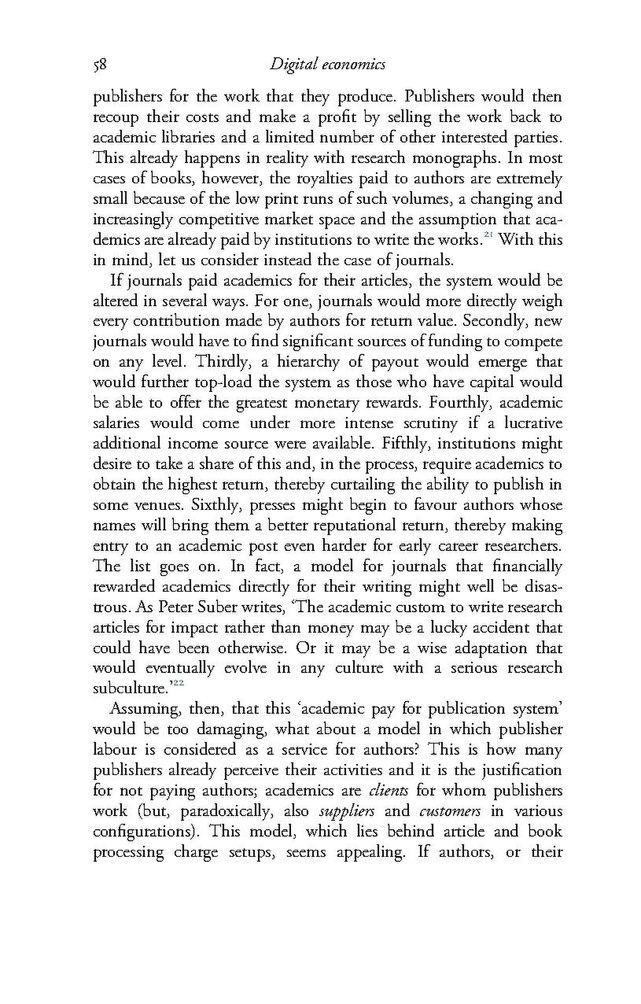publishers for the work that they produce. Publishers would then recoup their costs and make a profit by selling the work back to academic libraries and a limited number of other interested parties. This already happens in reality with research monographs. In most cases of books, however, the royalties paid to authors are extremely small because of the low print runs of such volumes, a changing and increasingly competitive market space and the assumption that academics are already paid by institutions to write the works.21 With this in mind, let us consider instead the case of journals.
If journals paid academics for their articles, the system would be altered in several ways. For one, journals would more directly weigh every contribution made by authors for return value. Secondly, new journals would have to find significant sources of funding to compete on any level. Thirdly, a hierarchy of payout would emerge that would further top-load the system as those who have capital would be able to offer the greatest monetary rewards. Fourthly, academic salaries would come under more intense scrutiny if a lucrative additional income source were available. Fifthly, institutions might desire to take a share of this and, in the process, require academics to obtain the highest return, thereby curtailing the ability to publish in some venues. Sixthly, presses might begin to favour authors whose names will bring them a better reputational return, thereby making entry to an academic post even harder for early career researchers. The list goes on. In fact, a model for journals that financially rewarded academics directly for their writing might well be disastrous. As Peter Suber writes, ‘The academic custom to write research articles for impact rather than money may be a lucky accident that could have been otherwise. Or it may be a wise adaptation that would eventually evolve in any culture with a serious research subculture.’22
Assuming, then, that this ‘academic pay for publication system’ would be too damaging, what about a model in which publisher labour is considered as a service for authors? This is how many publishers already perceive their activities and it is the justification for not paying authors; academics are clients for whom publishers work (but, paradoxically, also suppliers and customers in various configurations). This model, which lies behind article and book processing charge setups, seems appealing. If authors, or their
